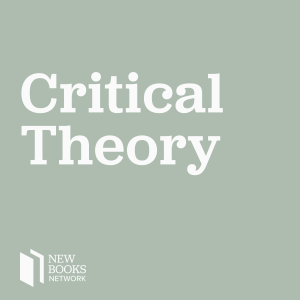
Matthew Clair, "Privilege and Punishment: How Race and Class Matter in Criminal Court" (Princeton UP, 2020)
 2021-05-18
2021-05-18
Download
Right click and do "save link as"
Privilege and Punishment: How Race and Class Matter in Criminal Court (Princeton UP, 2020) by Matthew Clair is a powerful ethnographic study of the experiences and perspectives of criminal defendants. While many studies have demonstrated the existence of race and class disparities in the criminal justice system, Clair conducted a rare and compelling study that puts heart and emotion into these disparities. As he argues and shows, not only should we care about quantitative inequalities in criminal justice, but "[w]e should [also] be concerned about differences in the quality of the court experience" for so many defendants.
Clair did extensive interviews with and observed criminal defendants, defense lawyers, judges, police officers, and others interact with each other in the Boston court system. What he shows is a system that operates differently for people of privilege compared to people without. While many criminal defendants face struggles of alienation from societal structures, the underprivileged often resort to crime out of necessity, whereas privileged defendants were more likely to enter the system because of pleasure-seeking or to avoid pain.
Once in courtrooms, underprivileged defendants, especially racial minorities, develop profound mistrust of their court-appointed attorneys. These defendants face, and have often repeatedly been represented by overworked lawyers who often refuse to listen or to develop relationships of trust with their clients, which led many of these defendants to "withdraw," as Clair coins it, from the attorney-client relationship. Some resisted the lawyer or the court: complaining openly about the lack of diligence, asking the court to appoint new counsel, or taking it upon themselves (often with group support) to learn the law and make the arguments their lawyers refused to make. Others developed what Clair calls an attitude of resignation, recognizing the futility of their situation, and essentially giving up the fight.
The experience is fundamentally different for privileged defendants. These defendants often have broad social circles that include the police or lawyers. Because of those connections, they are able to obtain counsel of their choice. The payment of fees engenders trust in the relationship. These defendants defer to their lawyers, trust their judgment, and feel genuinely satisfied with the representation.
Clair argues that courts punish those defendants who withdraw from their lawyers and reward those who defer to them. He calls on lawyers to develop more trusting relationships with their clients and to work toward a more holistic style of defense that considers more than just the legal issues in the case. He encourages courts to allow defendants to choose their court-appointed attorney and to encourage a more participatory legal system in which defendants are not punished for expressing dissatisfaction with their lawyer.
Clair's study is replete with compelling and personal examples. The narrative is what makes this study especially moving. Clair gives voice to those who repeatedly tried, but failed to get their lawyers and courts to listen. Because of Clair's work, we can now hear them.
Samuel P. Newton is an Assistant Professor of Law at the University of Idaho.
Learn more about your ad choices. Visit megaphone.fm/adchoices
Support our show by becoming a premium member! https://newbooksnetwork.supportingcast.fm/critical-theory
view more
More Episodes
012345678910111213141516171819
Create your
podcast in
minutes
- Full-featured podcast site
- Unlimited storage and bandwidth
- Comprehensive podcast stats
- Distribute to Apple Podcasts, Spotify, and more
- Make money with your podcast
It is Free
- Privacy Policy
- Cookie Policy
- Terms of Use
- Consent Preferences
- Copyright © 2015-2024 Podbean.com





